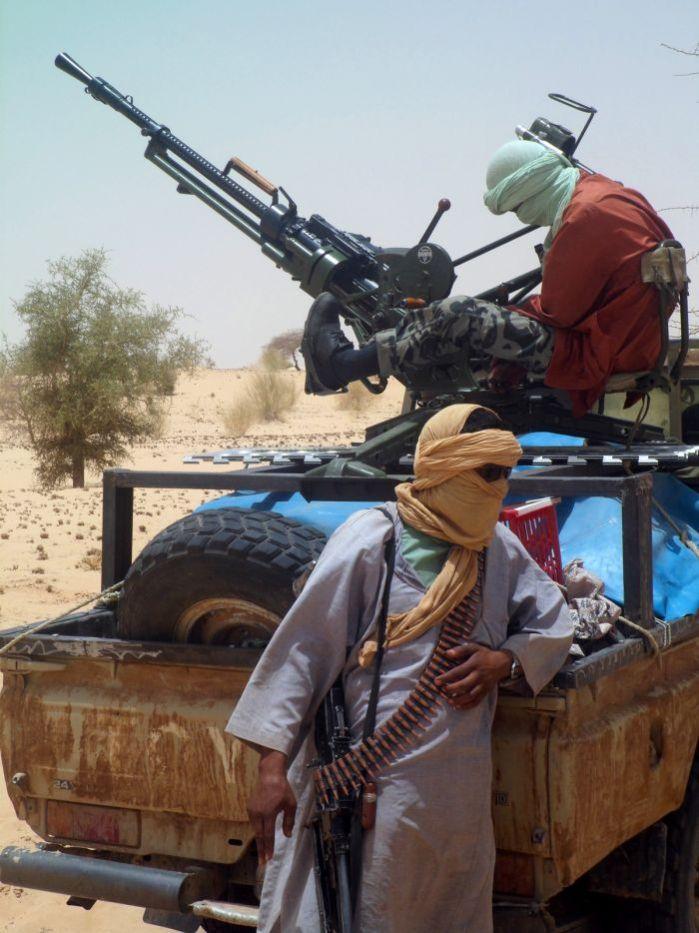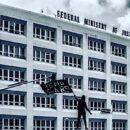Mali: Listening without Drones – By Gregory Mann and Bruce Whitehouse


National dialgue on Mali's future is essential and must include both armed groups and those who did not participate in uprisings.
Recent and still unconfirmed reports of the killings of top leaders of Al Qaeda in the Islamic Maghreb underscore tangible advances made by French and African forces in rolling back the violent jihadist onslaught that began in Mali over a year ago. Yet the hardest task lies ahead: setting up a viable political system that all Malians can live with. From vital partners like the US, which has just deployed drones to neighboring Niger, this task will require not high-tech solutions, but low-tech listening to the Malian people.
U.S. policy to date””particularly a tone-deaf privileging of counter-terrorism over good governance””has arguably done more harm than good in Mali over the last decade. In the context of the current crisis, we suggest three ways that the US government can help. They require not boots on the ground, but fine-tuned diplomacy.
First, don’t rush elections.
The US government, bound by legislation barring aid to any regime that ousted an elected predecessor, has long been pressing for fresh elections, even while half of Mali was under rebel occupation. Now that the country’s northern regions have been wrested””if incompletely””from jihadist control, Mali’s interim government has scheduled polls for July. The country will not be ready, and inhabitants of its vast northern regions will almost certainly be disenfranchised. True, elections must eventually be held, but doing so prematurely will confer an uncertain mandate from a fractured electorate, paper over deep rifts in the Malian state, and pave the way for another crisis.
Any election creates winners and losers. Rapid elections propelled by outside, institutional interests, rather than by Mali’s own political actors, are likely to create more problems than they solve. What Malians need now is cooperation, not competition.
Second, insist on national dialogue.
A space must be created in which Malians of all backgrounds can discuss a way forward. Only respected and familiar leaders will be able to negotiate with and work in the interest of disaffected communities throughout the whole country, but such a dialogue must be as inclusive as possible. The table must truly be round: those who did not take up arms need to have an equal place with those who did.
As well as rebel leaders of various northern factions, peace talks should include civil society leaders from north and south alike. Like it or not, rebel leaders who are not accused of crimes against humanity will have to be included in such negotiations. By insisting on that point, outside powers can give the government in Bamako the political cover it needs to talk with its opponents who are fellow citizens. Lasting peace in the Sahara depends on addressing their legitimate grievances, particularly those of nomads.
Third, support the government’s initiative for truth and reconciliation.
For generations tensions between nomadic Tuareg and other ethnic groups have caused deep wounds that can only be healed through a truth and reconciliation process. The scope of this process should not be restricted to events in northern Mali, but should encompass misdeeds committed throughout the country, including by the previous government and by the soldiers who overthrew it a year ago. Culprits left out of this process may be targeted by the International Criminal Court, which is now pursuing its own investigations into crimes committed in the country, but justice and forgiveness cannot be outsourced.
Other things can be. Rebuilding Mali will require more than just the restoration of electoral democracy. As one of the poorest countries in the world, post-conflict Mali will need economic assistance. Smart investments might include roads and bridges that would better connect the country internally and to its neighbors. In the North especially, better infrastructure would reduce the cost of living, improve food security, allow the state to deliver services, and enable the region to export its most valuable commodity, livestock. Renewable energy installations would also help Mali to grow on its own.
The first step might be the hardest: to recognize that Mali is Mali, and approach the crisis there on its own terms, especially regarding peace, justice, and governance. Mali is neither Somalia, nor Afghanistan, nor an “Africanistan.” After generations of human investment, notably by Peace Corps volunteers and Fulbright fellows, the US government is in a good position to know this. We hope President Obama and Secretary of State John Kerry are wise enough not to let analogy do the work of analysis.
We hope too that sending in the drones does not represent another instance of privileging cheap, technically sophisticated, and often violent interventions by remote control over the longer, harder work of listening to and engaging in dialogue. The problems bedeviling Mali are long-running and multi-faceted. They cannot be droned out of existence. The best way the U.S. government can help Malians realize their aspiration for substantive””not just formal””democracy is to listen carefully, and let them take the lead.
Gregory Mann, historian, Columbia University
Bruce Whitehouse, anthropologist, Lehigh University





Hi Gregory and Bruce.. Thank you for this review of what needs to be done.. and not done.. to assist Mali to achieve long-lasting peace.. I concur completely with your three recmendations. I have followed both your writings over the past two years, and each time, I have found your analyses to be spot on and your writing wonderfully crafted. Ye manage to either say exactly what is on my mind, or to provide an accurate overview of the complexities of the situation and of its history.. And now I am delighted to see ye writing and working together in this article.. Thanks.. Elizabeth
[…] Mali: Listening without Drones – By Gregory Mann and Bruce Whitehouse National dialgue on Mali's future is essential and must include both armed groups and those who did not participate in uprisings. […]
[…] note: Greg Mann and I recently co-authored a shorter opinion piece making some of these same points. This blog post represents my own views and does not necessarily […]
[…] that it had soldiers being trained in China. The Ambassador appears to be quite studious, he cited the work of several academics and suggested that Niger would indeed be focusing on development efforts to […]